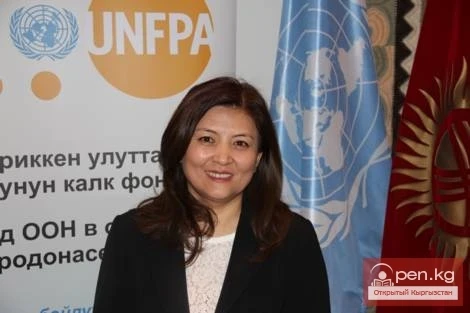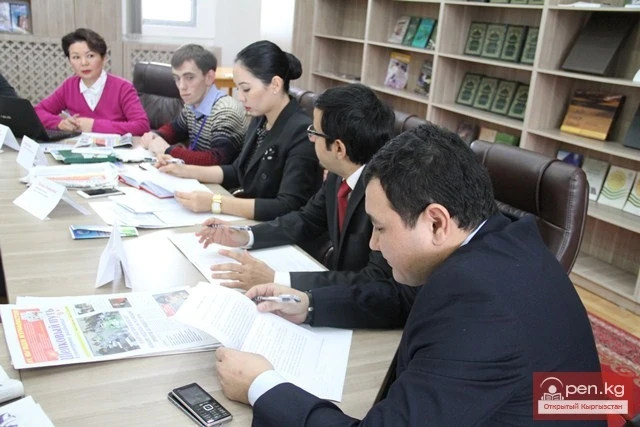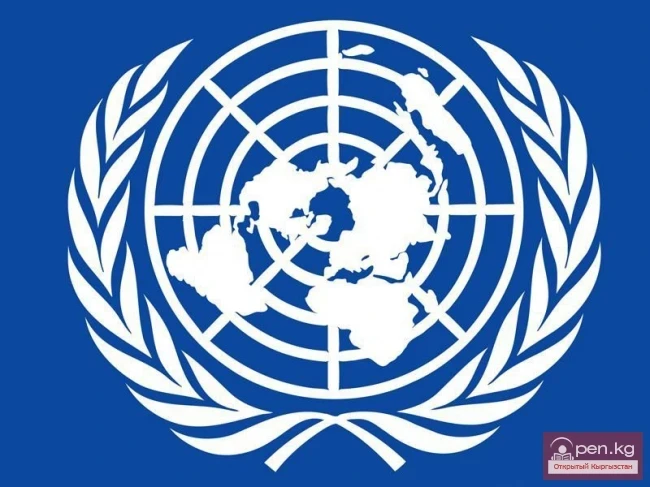This event became an important platform for discussing the first analytical report in the country on how climate change affects reproductive health in Kyrgyzstan. The presentation was delivered by the authors of the report - expert Zhyldyz Kuvatova and the director of the public foundation "Alliance for Family Planning," Baktygul Bozgorpoeva. The document, prepared with the support of UNFPA, analyzes the impact of extreme temperatures, air pollution, seasonal anomalies, and water scarcity on medical infrastructure and access to reproductive health services, as well as on pregnancy outcomes and newborn health.
The report emphasizes that children born in the era of climate change will face an increased frequency of extreme weather events, which will negatively affect their health and well-being throughout their lives. The developing fetus and young children are particularly vulnerable to heat stress, which can have both immediate and long-term effects on their physical development.
"Research shows that heat stress increases the risk of adverse birth outcomes, including preterm births. Since 2010, the number of preterm births in Kyrgyzstan has increased by 18%, but additional data needs to be collected to establish a link to heat stress, which is currently not being gathered. Statistics on 'Air Quality Protection' since 2011 indicate anthropogenic factors in pollution, but data on harmful substances from stationary sources do not provide a complete picture," the report states.
Extreme weather conditions can also lead to the destruction of infrastructure related to reproductive health. Meanwhile, the Ministry of Emergency Situations does not collect statistics on damage to healthcare facilities such as maternity hospitals. For a deeper analysis, it is important to study how climate change affects the burden on healthcare and how prepared it is for extreme temperature conditions and other natural disasters.
According to information, extreme weather events hinder access to maternal health services, contraception, and family planning. From 2015 to 2024, there were 767 emergencies in the country, mainly related to mudflows and avalanches; however, there is no data on damage to healthcare. This data could clarify how climate change affects the availability of maternal health and family planning services.
Of the 4,680 people who died as a result of natural disasters from 2015 to 2024, there is no information on the number of pregnant women. Natural disasters, as a consequence of climate change, increase the risk of gender-based violence and worsen reproductive health. During such periods, existing inequalities and vulnerabilities are exacerbated by resource shortages and other factors that require further analysis to develop solutions.
In 2023, emissions of pollutants into the atmosphere from stationary sources amounted to 62.3 thousand tons, which is 24% higher than in 2019. It is important to note that emissions of solid pollutants increased by 1.6 times, and emissions of carbon monoxide rose by 25%.
"Some studies show that increased concentrations of particulate matter in the air can negatively affect sperm quality and cause menstrual cycle disorders in women," the report states.For example, in countries with high levels of pollution, fertility rates have decreased by 10-15%.
"The rise in emissions of solid pollutants over the past five years in Kyrgyzstan increases the risks of diseases affecting reproductive health. Carbon monoxide, even in small doses, can reduce blood oxygen levels, posing a danger to pregnant women. This substance can lead to preterm births and developmental delays in the fetus," the document emphasizes.
It is also noted that the increase in pollution-related diseases includes chronic respiratory diseases such as asthma and bronchitis, as well as reproductive function disorders. This is particularly relevant for women, as polluted air can negatively affect hormonal balance and the functioning of the ovaries and uterus.
Water supply quality and pollution of water bodies also play a significant role in reproductive and maternal health.
In 2023, the total volume of water supplied to the country was 447.2 million cubic meters, exceeding the 2019 figures (401.3 million cubic meters). However, only 125.3 million cubic meters of this volume underwent purification.
- Contaminated water can lead to infections, including bacterial urinary tract infections. Women are more susceptible to these infections, which can worsen their reproductive health and increase the risk of complications during pregnancy.
- Pollutants such as pesticides and heavy metals negatively affect reproductive organ functions and reduce reproductive capabilities.
- Chemically contaminated water can cause various complications during pregnancy, including anomalies and developmental delays in the fetus.
- Poor water quality can be a source of infectious diseases that are dangerous for pregnant women and infants, increasing the risk of preterm births and other complications.
- Chemicals can affect the child's nervous system, hindering its development.
- Problems with access to clean water can lead to numerous diseases, including urinary tract infections and gastrointestinal diseases.
"For effective management of reproductive health, there is a lack of data on the number of people exposed to hazardous substances, as well as on mapping these risks," the authors of the report note.
Additionally, the issue of medical waste disposal from maternity hospitals remains unresolved: the lack of research and analysis on this issue complicates the assessment and planning of actions for environmental protection and public health.
"Until 2024, issues of climate change and reproductive health in Kyrgyzstan were not addressed within a unified state program. This has created fragmentation of data and a lack of coordinated approaches, hindering the development of effective solutions. Nevertheless, the consequences of climate change are already evident: an increase in average temperature, an increase in extreme weather events, and glacier melting threaten water supply and food security, as well as public health," the concluding part of the document emphasizes.
Although these interconnections are significant, the authors note that state policy hardly considers reproductive health in the context of climate change, and the approach to this issue remains predominantly technocratic, overlooking humanitarian and human rights aspects.
"Despite Kyrgyzstan's 'landlocked' geographical position, the country and all of Central Asia are already experiencing transboundary consequences of the global climate crisis. This requires a comprehensive approach at the national policy level and international cooperation. Only a systemic, human-centered approach will mitigate the effects of climate change and ensure sustainable development, including the protection of reproductive health rights," the researchers conclude.
Photo on the main page is illustrative: meteovesti.ru.












